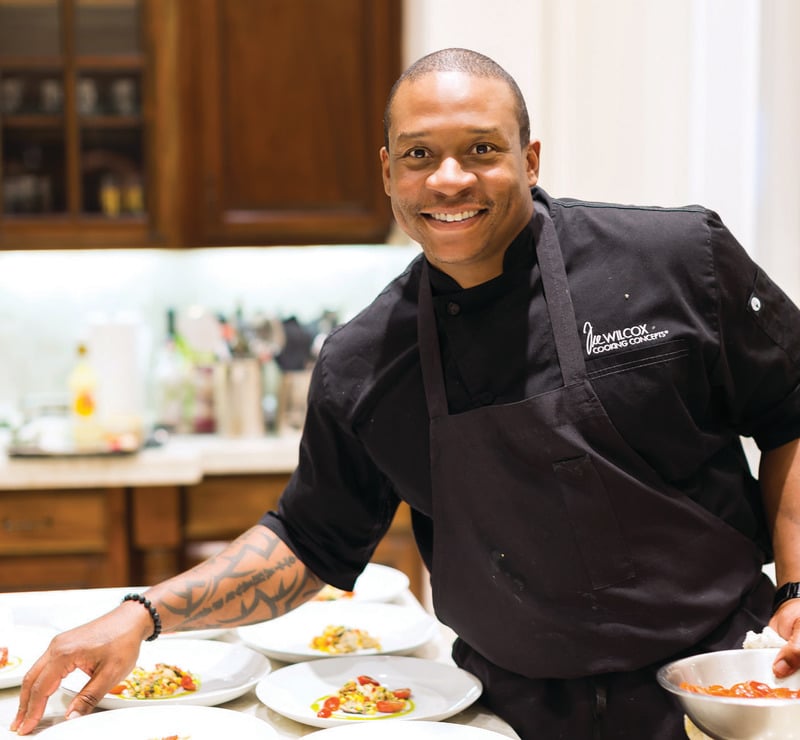Today, he’s a celebrity chef, but Tre Wilcox describes his education as “the school of hard knocks.” He started working in kitchens at a young age, fell in love with the culinary field, and jumped into the fire feet first to learn everything he needed to know.
That led him to accomplishments including running his own cooking school, being nominated for the James Beard Award twice, and competing on the highly popular culinary shows “Top Chef” and “Iron Chef America.”
But it took more than hard work. He credits the help of mentors for his career— and that has driven him to go on to mentor others.
In January 2021, Edgemere, a Lifespace community in North Dallas, was working with dining provider Thomas Cuisine and had just promoted a sous chef to the head position.
“The thinking was, ‘Let’s give him an opportunity. Let’s actually invest in him.’ And investing in him meant hiring me to go in and teach him and work with the other chefs and the culinary director to make this whole shebang a much better lively, consistent, and delicious program that the residents can enjoy,” Wilcox explained.
His teaching and mentoring process begins with observation, so he can get a feel of what his mentees do on a daily basis and identify the areas where they can improve.
“You have to be able to step back and let people do what they think is correct before you’re able to assess it. So I’m not overbearing on people, more allowing them to do their own thing,” said Wilcox.
“I also will, a lot of times, work with them by hanging out on the line and helping the flow of service. This allows people to let down their guard and think, ‘Okay, he’s not managing us, he’s just helping us.’”
In addition to helping chefs in person at Edgemere, Wilcox made himself available by phone whenever there were questions or concerns that arose when he was not on site.
Wilcox was tasked with creating a kitchen environment that best served resident needs—and part of that meant spending time talking to residents directly about what they wanted.
“I was out on the floor talking to them at the table,” he said. “I enjoyed talking to them a lot—and 50 percent of what I changed in the kitchen was based on what I got from the residents.”
And residents noticed. It wasn’t just some guy coming out and smiling in their face just to make them feel like they were getting listened to,” said Wilcox. “I really was listening and really did make changes based on the things they said.”
As culinary associates learned more, Wilcox says, they became more fired up about their work.
“The chefs got excited about it,” he said. “They were so inspired to feel the push to be more creative, and to use more fresh ingredients.”

